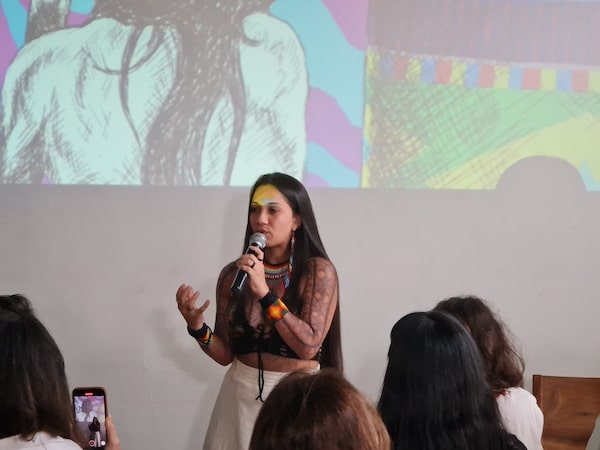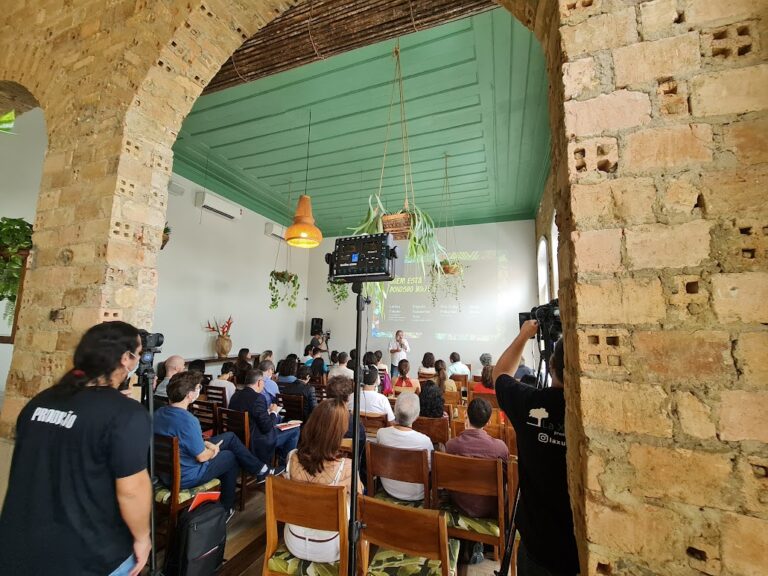Saúde
“A saúde é básica para a preservação da floresta”.
Eugenio Scannavino Neto
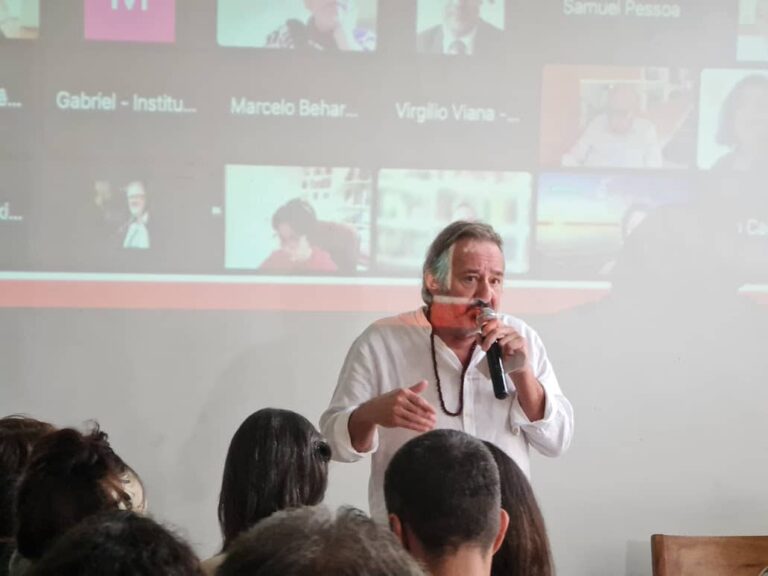
“A conexão entre economia e saúde é necessária”.
Dra. Érika Pellegrino
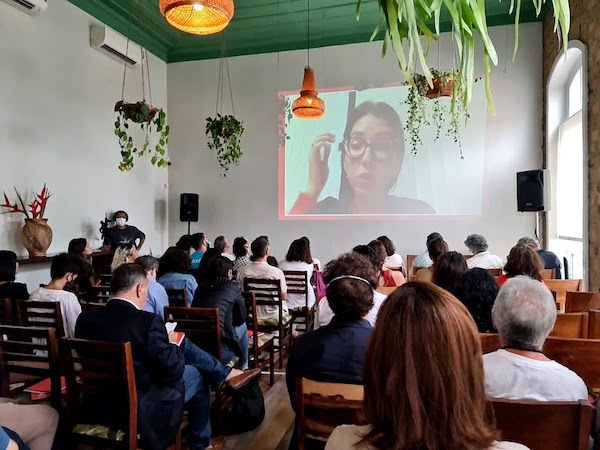
Premissas da Concertação para a Saúde
Para fechar esta parte do debate, Lívia Pagotto, gerente de conhecimento do Instituto Arapyaú, apresentou indicadores de saúde da Amazônia Legal e um resumo de caminhos possíveis nesta frente, tais como:
- o fortalecimento da atenção básica em áreas remotas e das capacidades institucionais, com governança adaptada ao território amazônico (SUS adaptado);
- acesso a dados e ampliação de capacidades analíticas (governos federal, estaduais e municipais);
- abordagem de saúde planetária: conexão entre saúde/pandemias/conservação da floresta;
- infraestrutura e logística partilhadas para a entrega de políticas estruturantes;
- estabelecimento da Amazônia como território de prática para universidades e centros de pesquisa.
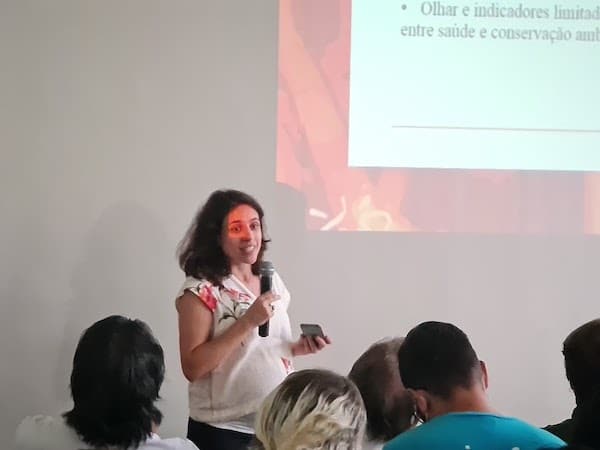
ECONOMIA
“A Amazônia é um imenso patrimônio cientifico da humanidade”.
Denis Minev
No bloco de debate sobre economia, o empresário e presidente da Bemol ressaltou que a Amazônia não é um problema ambiental a ser resolvido, e sim uma região imensa, com diversidades internas de todos os tipos e que não deve ser abordada sem uma “visão” de prosperidade. Ele lembrou que a ciência brasileira não está voltada para o patrimônio ambiental da Amazônia, onde faltam profissionais, equipamentos e financiamento para pesquisa. Para ele, é possível reinventar o Brasil a partir da Amazônia.
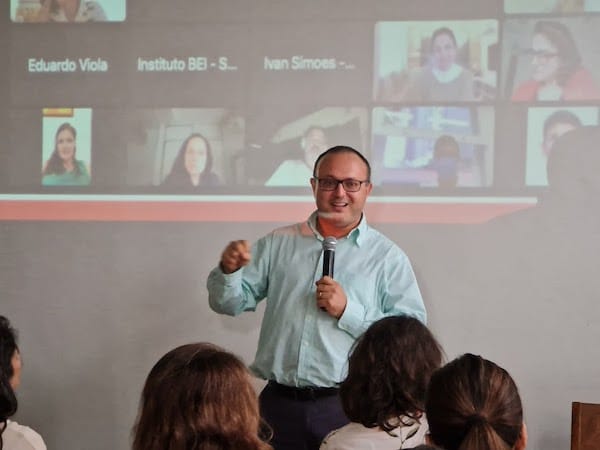
“Falta diálogo entre o governo e os povos indígenas”.
Larissa Tukano
Premissas da Concertação para a Economia
- mosaico de atividades econômicas de acordo com as paisagens: bioeconomias, economia da conservação, economia campo-cidade, economia urbana;
- coordenação inter e intrarregional;
- inclusão do informal no mercado de trabalho;
- mobilização de fontes de recursos diversificadas, com a maior mobilização possível de capital paciente no curto prazo;
- revisão tributária e de incentivos, considerando conservação, clima e biodiversidade;
- acesso a crédito e a mercados;
- equilíbrio entre as commodities;
- aprimoramento da governança e incentivos.
Lugar de fala
“Se a gente não cuidar das pessoas que cuidam da Amazônia, não avançaremos”
Vanda Witoto
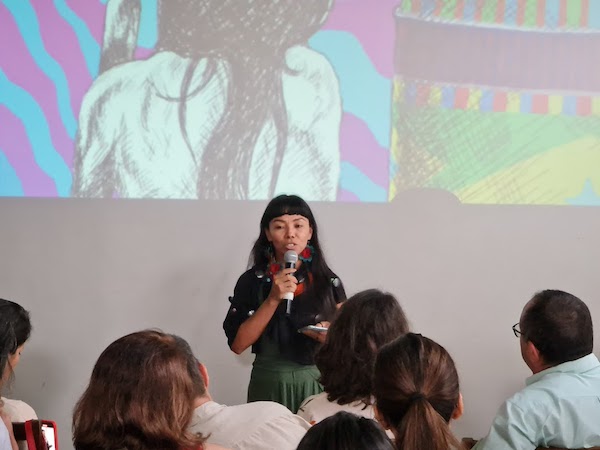
Além da ênfase dada às questões relacionadas aos direitos dos povos indígenas e à temática da saúde, ambas convergiram nas suas reivindicações: os povos originários não pedem obras, investimentos ou bens materiais; eles querem ser ouvidos e fazer parte da construção de soluções para o território. Nas palavras de Samela, “nada para nós, sem nós”!
